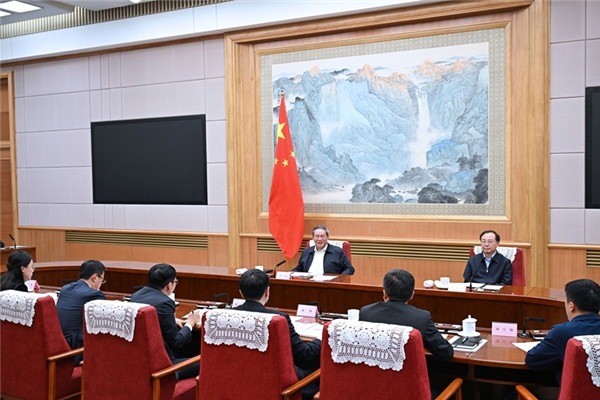Shanghai's Qingpu district ramps up high-quality growth of cosmetics sector

Shanghai's Qingpu district is stepping up efforts to promote high-quality growth of its cosmetics industry, focusing on innovation and leveraging its advantages in the integration of the Yangtze River Delta region, officials and experts said on Friday at a conference.
In recent years, China's cosmetics consumption has maintained strong growth momentum, with the market becoming the world's largest and its sales exceeding one trillion yuan for two consecutive years, official data show.
Shanghai, home to a number of traditional Chinese beauty brands, has also listed cosmetics, which are included in the fashion consumption sector, as one of its six key industries. Last month, the city rolled out a slew of measures to further promote the high-quality growth of the cosmetics industry, including encouraging technological innovation, upgrading service systems, fostering industrial ecosystems and new brands, as well as completing the industrial layout.
Among the measures, the Qingpu district is supported in prioritizing the development of functional skincare products, fragrances and perfumes, and guochao (or China-chic) brands.
Emerging in the 1980s, the cosmetics industry in the Qingpu district has seen rapid expansion and is entering a phase of innovation and improvement. The district is now home to a number of innovative beauty firms, raw materials, and packaging suppliers. In 2024, the output value of the district's cosmetics industry reached 10.87 billion yuan.
Leveraging the advantages brought by the integration of the Yangtze River Delta region and the China International Import Expo that takes place annually in the district, Qingpu is accelerating the building of a complete and competitive ecosystem covering the whole industrial chain.
One example is the Shanghai Yangtze River Delta Integration Demonstration Zone Jiangnan Beauty Industry Research Center. Launched in October 2023, the center aims to integrate supply chain resources, support sci-tech innovation, and construct an open and synergistic ecosystem of the cosmetics industry.
The world-leading personal care brand Nivea is among those benefiting from the district's solid support, especially in the registration process of its parent company Beiersdorf's patented anti-spot ingredient Thiamidol 630.
The ingredient, which was approved by Chinese regulators last November, is the first spot treatment ingredient to receive regulatory green light since China's new Cosmetics Supervision and Administration Regulation took effect in January 2021. The first batch of Nivea products using this ingredient is now rolling out to the market.
"We would like to express sincere gratitude to the Qingpu district leaders for their support in the registration process of Thiamidol 630. The precise and targeted assistance effectively smoothed out key links in the new ingredient approval process, and served as an important starting point for our subsequent localization efforts," said Grita Loebsack, president of Nivea and member of the executive board of Beiersdorf.
"China is one of Beiersdorf's key strategic markets. We are committed to revolutionizing China's skincare industry by delivering innovative skincare experiences for Chinese consumers. Beiersdorf will continuously increase the investment in the Chinese market, leading the change and innovation of the beauty and skincare industry, especially in innovation, digitalization, and sustainability," Loebsack added.





































